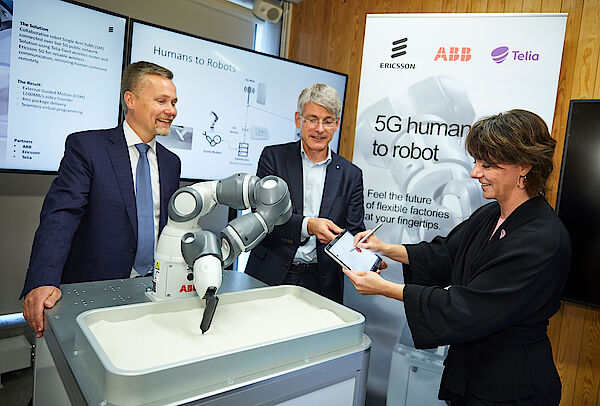Digital Futures: a cross-disciplinary research centre
In October 2020, the new Digital Futures research center was inaugurated in Stockholm, Sweden. The initiative is a collaboration between KTH Royal Institute of Technology, Stockholm University, and RISE Research Institute of Sweden (RISE). The center aims to solve societal challenges through digital transformation. The establishment of the center was inspired by the Einstein Center Digital Future (ECDF). The two research institutions in Berlin and Stockholm cooperate closely. One of the initiators of the "Digital Futures" in Stockholm is Prof. Dr. Kristina Höök (member of the Scientific Advisory Board of the ECDF).
Like the ECDF, the Swedish counterpart is also interdisciplinary. "Digital Futures taps into all areas of digitization. Collaborations are a key factor. It's not just about technical solutions, we need more perspectives and that's what Digital Futures will bring," said Sigbritt Karlsson, president of KTH, at the opening.
The strategic research program is the core element of Digital Futures. It is characterized by scientific excellence in order to successfully implement the vision. Innovation and development require renewal, recruiting and developing talented young researchers*, exploring the unknown and testing novel ideas. Connecting communities, in the sense of different scientific disciplines, but also industry and the public sector with academia, will support this process. Cross-cutting communities foster interdisciplinarity and diversity, which enables broader perspectives. This, in turn, creates opportunities to discover synergies and patterns that enable research to address a range of societal challenges.
Karl Henrik Johansson is the director of Digital Futures. He emphasized that digitization can create a more resource-efficient and sustainable society, while also posing some of the greatest scientific and technological challenges of our time. "There is still a lot of work to be done when it comes to AI, cloud solutions and integrity in the context of self-driving vehicles, the manufacturing industry, healthcare and nonprofit work in general. We are therefore assembling key competencies within different guilds to address our biggest societal challenges," he said.
For Jochen Schiller, ECDF board member, the cooperation with his Swedish colleagues is of particular importance. "We mutually benefit from positive, as well as negative experiences in building an interdisciplinary center. In particular, attracting the brightest minds internationally is a constant challenge for all of us. We are also planning comprehensive scientific, disciplinary as well as interdisciplinary exchange in particular also close cooperation with regard to the concrete implementation of a networked center with all its various formats, which should help to enable exchange in particular with society, business and politics on all issues of digitization," he says.

